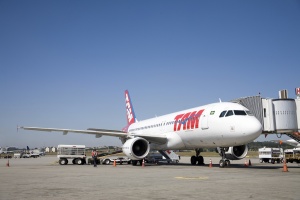ALTA joins IATA for South American Aviation Day
 Aviation supports 4.6 million jobs and $107 billion in GDP across the Latin American and Caribbean region.
Aviation supports 4.6 million jobs and $107 billion in GDP across the Latin American and Caribbean region. The Latin American & Caribbean Air Transport Association and the International Air Transport Association have hosted the first Aviation Day Central America, highlighting aviation’s contribution to the region’s economies and urging governments to take steps to increase its value as a catalyst for economic growth and development.
Latin America is among the fastest growing regions for air travel, supporting rising middle class economies and export-driven trade as well as inbound tourism.
However, significant infrastructure constraints, fees and taxes that are often not cost-based, and a lack of regional integration hamper aviation from driving economic growth and job creation.
Roberto Kriete, president, ALTA said, “We have brought aviation to a level of development and sophistication that will allow us to satisfy the ongoing expansion of travel demand, strengthening commercial aviation in Latin America and the Caribbean.
“That said, to truly achieve our vision and deliver on the promise of the future contributions of aviation to the benefit of the countries in the region, we must continue to reiterate the need for communication and dialogue among the airlines, air transport associations and the authorities to bring about the improvements that are so clearly necessary.”
At the conclusion of Aviation Day Central America, ALTA and IATA presented a Call for Action to enable aviation to reach its full potential as a catalyst for regional socioeconomic benefits:
Safety
LATAM carriers on the IATA Operational Safety Audit registry recorded no accidents in 2012.
For the same period, non-IOSA carriers in the region experienced 5.1 accidents per million flights.
A connection clearly exists between safety performance and participation on the IOSA registry.
IATA and ALTA therefore encourage participation in the IOSA registry.
In addition, governments should mandate participation on the IOSA registry as part of the operator’s certificate.
Airport Privatisation
- An early consultation process with airport users in the infrastructure planning and design process should be systematically put in place.
- Airport operators must be held accountable to standards of quality, efficiency and competitiveness.
- Independence between the operator and regulatory authorities is a necessity Airport operators and airlines are partners and airlines should have a formal role in capital investment decisions, establishing measurable and accountable cost efficiency targets and implementing service level agreements.
Airport and ATC Infrastructure Development
- Governments need to prioritise infrastructure development to accommodate rising levels of traffic demand.
- Service level metrics should be a part of the regulatory framework for future infrastructure development.
- Governments need to support the implementation of technologies such as Performance Based Navigation.
- A strong, independent economic regulator must be in place to support planned privatisations.
Efficiency
The Central American Air Service Navigation Corporation must deliver on its commitment to implement the issuance of a single Central American license for pilots, which will allow airlines to respond to rising passenger and cargo demand
Governments in the region should immediately conduct a thorough analysis of the cost structure of fuel in the region.
The price of fuel is higher in many countries in Central America than in other countries with similar conditions.
Peter Cerda, IATA director safety, operations & infrastructure, the Americas and Atlantic, said: “Aviation is a key driver of economic growth across Latin America and the Caribbean region. Central America is well-positioned geographically to more fully benefit from the connectivity enabled by aviation if the challenges of inadequate infrastructure, excess fees and charges, and a lack of coordination among States can be addressed.”

